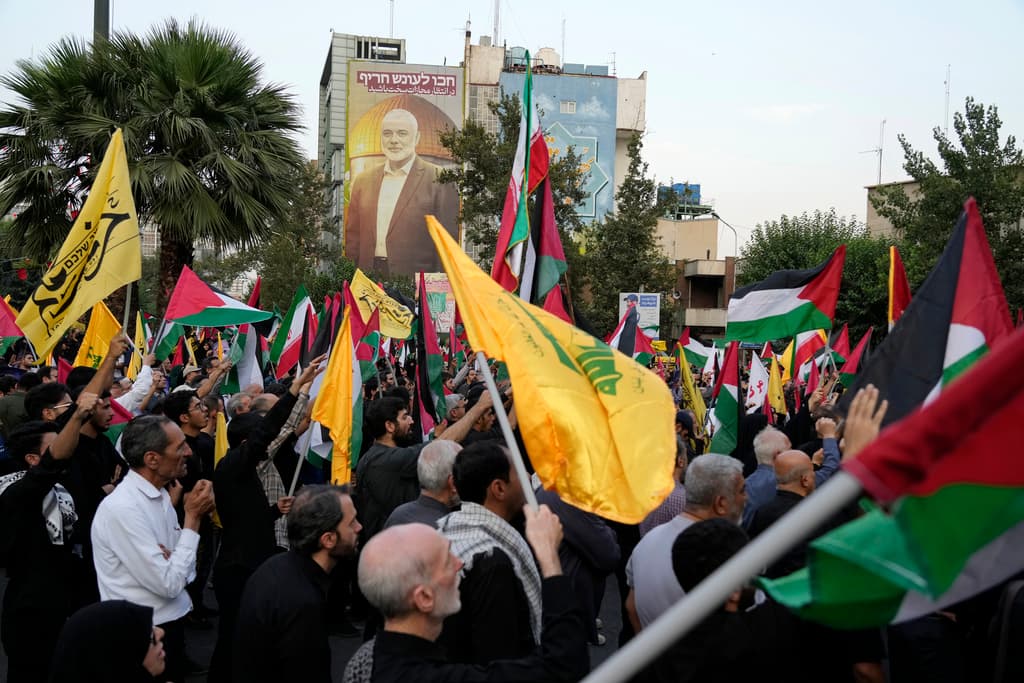Israel’s Preemptive Attack on Hezbollah Might Have Prevented a Wider War
And, by the same logic, a preemptive strike against Iran’s nuclear arms program would be justified.

Had Hezbollah succeeded in attacking the suburbs of Tel Aviv and other areas in central Israel, Israel might have had to launch a major retaliatory attack on Lebanon. After all, Hezbollah is Lebanon. It is in complete control of the country, and Israel would have been justified in declaring war on that nation. It also would have been justified in destroying the nation’s infrastructure that has dual uses — both military and civilian.
By preemptively attacking Hezbollah’s rocket launchers, the Israel Defence Forces thwarted much of Hezbollah’s attack and precluded it from reaching its intended targets in central Israel. This may not bring about peace but it is likely to forestall the kind of regional war that Hamas desperately wants.
Israel has used preemption as a military tactic throughout its history, most dramatically in 1967 when it took out the air forces of Egypt and Syria while the planes were still on the ground. Prime Minister Begin preemptively destroyed Iraq’s nuclear program and Prime Minister Olmert preemptively destroyed Syria’s nuclear program. These actions were not only militarily and legally justified, but they saved numerous lives and helped prevent wider wars.
The hard question now is whether Israel should engage in a preemptive attack on Iran’s imminent nuclear arsenal. Such an attack would be far more difficult than any previous ones and carries with it considerable risks. But it also carries great potential benefits.
An Iran with a nuclear arsenal would provide a nuclear umbrella under which its deadly surrogates — Hezbollah, Hamas, Houthis, and others — could operate with greater impunity. Iran’s leaders have pledged to use its nuclear arsenal to destroy Israel, even if that resulted in the deaths of millions of Iranians in a counter-attack by Israel.
When Begin ordered the preemptive destruction of Iraq’s nuclear reactor, he made it clear that Israel does not have a sufficient deterrent capability because the IDF would never bomb Baghdad with a nuclear weapon. Destroying the reactor before it was completed, with almost no civilian casualties, was the only realistic option.
This easy option is not currently available for Iran because it has buried much of its nuclear program underneath civilian structures including hospitals, schools, and mosques. It is using the Hamas tactic of human shields but using it writ large to protect its nuclear program.
So the cost and benefits of preemptive attacks on Iran’s nuclear arsenal are far greater than in any previous action. It is more like the decision that the British and the French had to make when Germany started to rebuild its ferocious army in the mid-1930s. Here is what Joseph Goebbels wrote in his diary about that decision — or lack thereof: “We have succeeded in leaving the enemy in the dark concerning Germany’s real goals…, they let us through the danger zone.”
The Nazi propagandist added: “That’s exactly how it was in foreign policy, too… in 1933 a French premier ought to have said (and if I had been the French premier I would have said it): ‘The new Reich Chancellor is the man who wrote Mein Kampf, which says this and that. This man cannot be tolerated in our vicinity. Either he disappears or we march!’”
Yet, Goebbels concluded, “they didn’t do it. They left us alone and let us slip through the risky zone, and we were able to sail around all dangerous reefs. And when we were done, and well armed, better than they, then they started the war!”
A preemptive attack by Britain and France against Germany in the mid-1930s would have been condemned as too aggressive but it would have saved millions of lives. The same may well be true of a preemptive attack that destroyed Iran’s nuclear arsenal before it was completed.
If Iran were again to attack Israel directly as it did in April, that might provide the occasion for an Israeli attack that would be both reactive and preemptive. Perhaps that is why Iran is delaying its promised attack.
A decision to not attack Iran’s nuclear program could have catastrophic consequences. So could a decision to attack. This is a dangerous epoch and a critical time for wise leadership.

